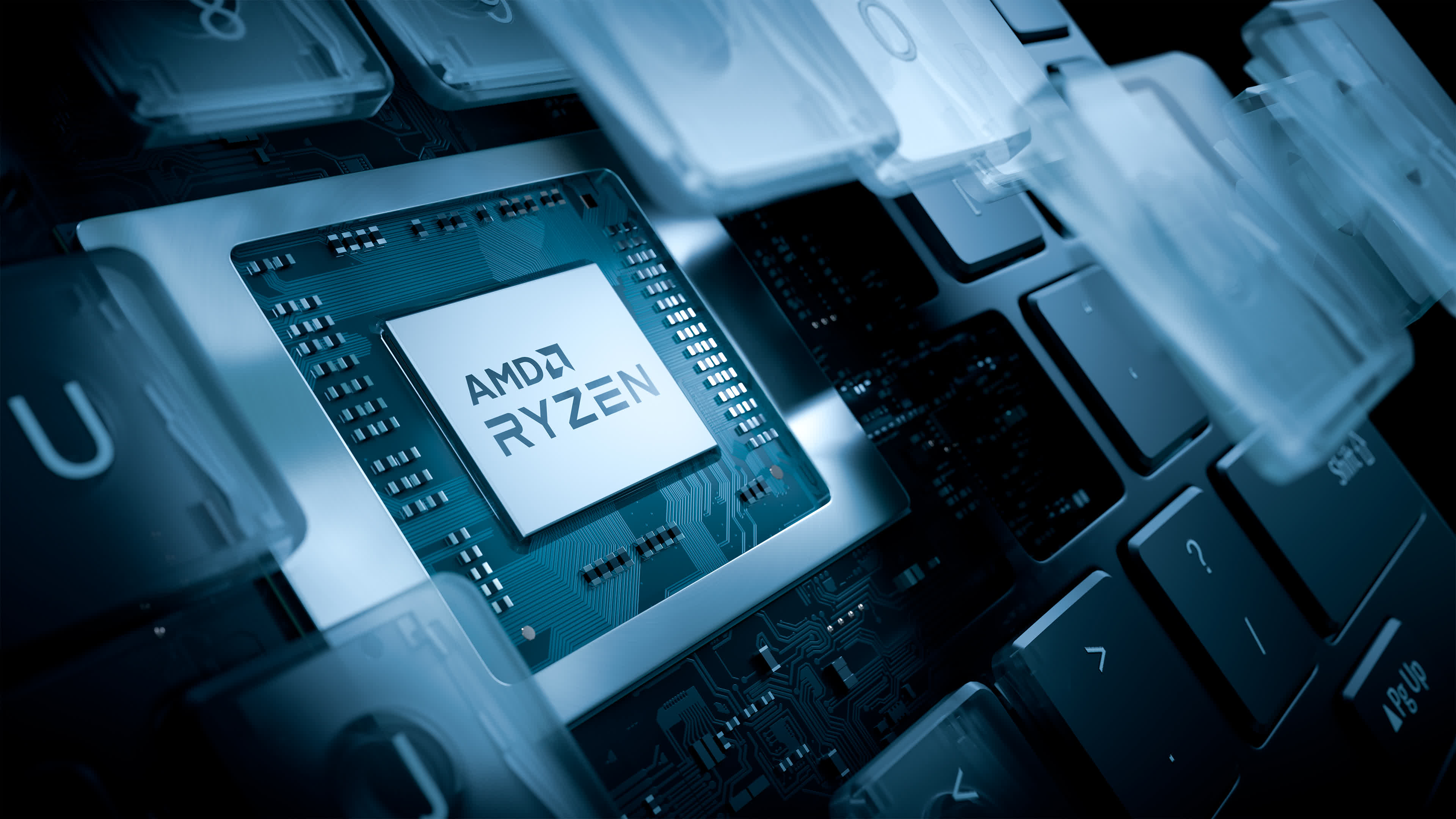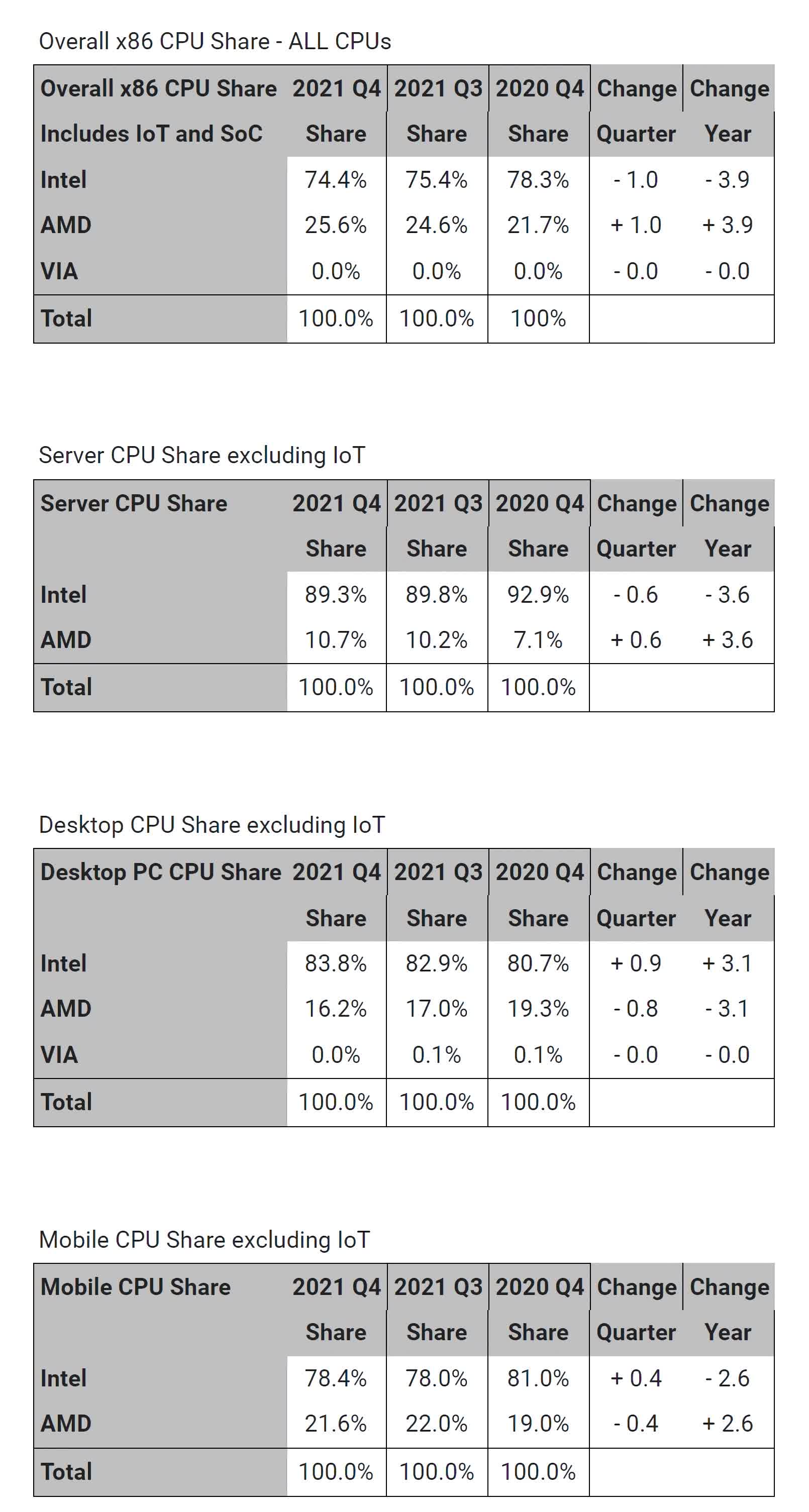In brief: The PC processor market grew to 500 million units in 2021 thanks to continuing strong demand from consumers and organizations for faster, more capable machines. AMD's overall share of the x86 market is still growing, but it's unclear if the trend will continue this year.
AMD continues to make gains in market share against Intel in the x86 processor market. According to a new report from Mercury Research, Team Red in Q4 2021 enjoyed a 25.6 percent share of the overall market for CPUs built on the x86 architecture, the highest it's seen since 2006. It's also a 3.6 percent year-over-year increase, which isn't bad considering the ongoing chip shortage.
To put things in context, AMD has been gaining market share against Intel for 11 quarters in a row, especially when it comes to PC, console, and IoT x86 products. The only exception was in the area of desktop and laptop processors, where Intel managed to claw back some market share in the three months ending in December 2021. This was mostly thanks to Tiger Lake mobile parts and a combination of Rocket Lake and Comet Lake desktop products.
Luckily for AMD, its server shipments helped it reach a 10.7 percent market share, and this is the 11th quarter where it chipped away at rival Intel's foothold in this area. Demand for consoles like Microsoft's Xbox Series X/S and Sony's PlayStation 5 also remained high, contributing to AMD's overall market share in Q4 2021. The findings are echoed by an Omdia report, except for AMD's server CPU share being estimated at 18.3 percent as opposed to 10.7 percent in the analysis made by Mercury Research.
Also worth noting is that the overall x86 market grew 16 percent in 2021, with almost 471 million units shipped across all categories. Mercury Research also notes that SoCs for Chromebooks and Apple Silicon Macs totaled 29 million units, most of them being of the latter variety.
Intel boss Pat Gelsinger isn't concerned with AMD's gains, and believes the latter company is "in the rearview mirror" following the release of the Alder Lake family of CPUs. Team Blue does seem to have some compelling 12th generation processors to sway buyers away from AMD, but we'll have to see how they stack up against upcoming offerings from Team Red.

